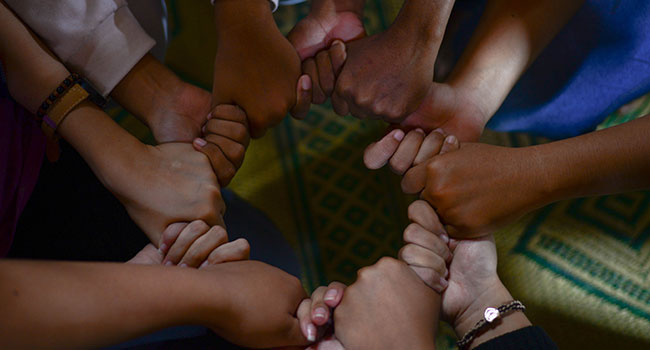 The world is in crisis. After touching on some of the problems, I’ll list possible policy responses and suggest why humanity so far has failed to implement them.
The world is in crisis. After touching on some of the problems, I’ll list possible policy responses and suggest why humanity so far has failed to implement them.
Time is short but I believe that at root, our obstacles are political, not lack of scientific knowledge.
Problems
Global warming and related extreme weather events, rising sea levels and the threat to continued ocean currents like the gulf stream.
Human-caused global warming exists is no longer contestable. Almost all scientists agree that further dangerous increases in temperature are inevitable unless drastic action is taken.
If the Gulf Stream weakens significantly, western Europe’s climate will resemble northern Saskatchewan’s and overall precipitation and temperature patterns will change enough to generate hundreds of millions of environmental refugees. Low-lying areas like Bangladesh and Florida will be inundated.
The sixth great extinction.
“The loss of biological diversity is one of the most severe human-caused global environmental problems. Hundreds of species and myriad populations are being driven to extinction every year. From the perspective of geological time, Earth’s richest biota ever is already well into a sixth mass extinction episode,” says a report from the Proceedings of the National Academy of Sciences of the United States of America.
Measly conservation measures offer feeble comfort about habitat fragmentation, forest clearances, industrial megaprojects, pesticides, urbanization and countless other contributors, including dislocation due to global warming.
Yet, inexplicably, this extinction catastrophe doesn’t appear to be on most people’s radar. This is very bad news, especially if keystone species (e.g. pollinators) disappear and entire ecosystems collapse.
Pandemics: AIDS, ebola, SARS, COVID-19, with more to come.
We probably haven’t seen the worst of COVID-19 and it’s unclear whether an effective vaccine will be developed in time or at all. And other similar outbreaks are likely, with all their suffering and economic damage.
Yet many people actively resist proven amelioration measures because of ignorance or false ideologies.
Extreme economic inequality
This terrible injustice has worsened throughout the last century and a tiny percentage of people probably control more wealth than ever before. “The richest one per cent own 44 per cent of the world’s wealth,” says one report.
The young generation can hardly aspire to home ownership or the prosperity their parents enjoyed. The situation is so dire that many people, including university researchers and former U. S. President Jimmy Carter, have decided that the U. S. is no longer a democracy but a plutocracy (rule by the rich).
Physical suffering and social unrest will greatly increase across the globe unless this is urgently dealt with.
Unsustainable consumption and environmental degradation
Scholars like William Rees have developed notions like the “ecological footprint” to calculate how much of the Earth’s natural capital is being consumed and how this relates to the need to establish sustainable use.
Global Footprint Network estimates that, as of 2014, humanity has been using natural capital 1.7 times as fast as Earth can renew it. If this is correct, and continues, widespread ecological collapse is inevitable. There is no Planet B to make up the shortfall.
Major efforts to reduce the world’s population and consumption patterns would be an obvious response, but instead many nations are encouraging increases.
Belligerence of the United States, Russia and China
In 1947, the Union of Concerned Scientists created a notional Doomsday Clock to dramatize the risk of unlimited nuclear war. Over the years, it has been adjusted as the perceived threat from various threats waxed and waned. As of this year, the “iconic Doomsday Clock symbolizing the gravest perils facing humankind is now closer to midnight than at any point since its creation in 1947. To underscore the need for action, the time on the Doomsday Clock is now being expressed in seconds, rather than minutes.”
This is very frightening. Although today’s aggressor nations may prefer electronic attacks over nuclear bombs, Russia’s mischievous propaganda and interference with the 2016 American election are ominous developments. China is also very sophisticated in this sphere. And it has been alleged that hacking by the U.S. caused serious damage to Iran’s nuclear enrichment program.
This type of aggression may seem less dangerous than nuclear exchanges, but the present cadre of world leaders might well decide that this activity is so unacceptable that it merits nuclear retaliation.
As for the U. S., “President Barack Obama denounced ‘the idea of endless war’ even as he announced that ground troops would remain in Afghanistan. In his last year in office, the United States dropped an estimated 26,172 bombs on seven countries,” according to the New York Times. Furthermore, that country’s record of drone attacks is simply disgraceful.
Imagine how many terrorists have been created by these actions.
Populist loss of faith in democracy, the rule of law, science and civility
Oceans of ink have been spilled discussing these interrelated threats. Books like The Death of Expertise, Strangers in Their Own Land, A Warning and A Very Stable Genius are American examples.
It’s worthwhile remembering that Adolf Hitler was democratically elected in Germany and that in 2016 Americans elected an unbalanced, narcissistic, sociopathic serial liar as president. The rule of law seems critically ill, not only in the U. S, but in the other two superpowers, as well as other less powerful countries.
Racism, sexism and homophobia
The emergence of social movements like Me Too, Black Lives Matter and the Rainbow Coalition, coupled with the murderous instincts of hundreds of armed police, makes further discussion of the systemic nature of these hate-filled emotions unnecessary.
Terrorism, extreme religious fundamentalism
Crazed adherents of some religions believe that murdering innocent people is a good way of gaining power and opposing the “Great Satan,” the U.S. Just as bad is the fact that some evangelical “Christian” politicians appear to believe that the “Rapture,” when God will call the chosen ones away from their earthly existence, means that we should not worry about crises like religious strife in the Middle East because they presage the “End Days.”
Distorted versions of Islam, in nations like Saudi Arabia and Pakistan, are terrible threats, but an order of magnitude more Americans have been murdered by white men with the tacit support of the National Rifle Association in the Unites States.
As for market-based religions, see Harvey Cox’s book The Market as God.
The failure of the Internet’s promise
If social media sites like Facebook and Twitter were used mainly to post interesting, reflective articles, or co-ordinate important political movements like Egypt’s Arab Spring or Ukraine’s Orange Revolution, the Internet might fulfil its potential to encourage democratic uprisings and intellectual insights.
Unfortunately, oppressive governments learned how to suppress such tactics and the Internet has increasingly been dumbed down. Posting important family news is fine, but cute postings, banal sayings, together with online bullying, venomous rants by ignoramuses, mendacious false news, hacked distortions and pornography now appear to dominate the Internet. This erosion of popular culture is tragic.
What’s to be done?
Humanity is at a pivotal moment. Is there any hope?
Extremely strong responses are needed and the public mood doesn’t inspire optimism.
Is democracy suited for the task?
Hitler and Donald Trump clearly refute the ridiculous bromide that “the people are always right.”
A more useful aphorism is credited to Winston Churchill: “democracy is the worst form of government except all those other forms that have been tried from time to time.” So we’re stuck with it. Many examples show the stupidity of trusting dictators and a military model of human control recalls the horror of Soviet Russia or China’s cultural revolution.
Why have so many countries failed to respond or even recognize the need for urgent action?
Because of political failure. Using global warming as an example, fossil fuel producers, related industries and propagandists resist myriad measures to wean the world off carbon power sources and convert to sustainable energy.
Politicians are reluctant to lead lest competing jurisdictions prosper more by denying the looming catastrophe and increasing production.
Furthermore, politicians have a short-term horizon and little appetite for doing right but unpopular things. After all, shouldn’t they follow the wishes of their constituents?
And hapless voters are bombarded by false claims, both misinformed and deliberate. Understandably, they fear unemployment during the conversion to sustainable economics, so won’t vote for big changes. They also have lives to lead, a living to earn, children to raise and parents to care for. Where can they find the time to become well-informed on so many crucial issues?
What’s needed for a democracy to respond?
Surely rational, civil debate in a market place of ideas, informed by good science and an understanding of informal ethics. Background preparation would include education in critical thinking and a determination to seek truth. It also implies measures to avoid the overwhelming power of wealth and psychological, propagandistic manipulation.
My suggested policies include:
- strong energy conservation policies;
- weaning world energy generation off fossil fuels;
- more research on critical problems;
- reservation of huge natural areas;
- international action to preserve world fish stocks and reduce chemical biocides;
- reduction of world population and per capita consumption;
- improve education for both children and voters;
- a royal commission to stimulate a national debate about a no-growth economy, including myriad policies to reduce per capita consumption;
- greatly reformed redistributive taxation, and a “Tobin tax” (a proposed tax on international financial transactions, especially speculative currency exchange transactions);
- elimination of tax havens and other tax avoidance strategies used by multinationals;
- a re-examination by Canada’s government about relations with the big aggressive nations;
- new policing strategies to increase non-coercive treatment of family and mental health crises;
- more anti-poverty measures like a guaranteed annual income to aid poor and often racialized people suffering unemployment, social exclusion and prejudice;
- regulation of the Internet to eliminate libelous, mendacious or abusive postings and to tax its economic transactions.
Finally, proportional representation is desperately needed to give strong minority opinions a voice in the legislature.
This whole package is clearly much too big a mouthful, given present public opinion. There would be huge opposition to many of the ideas, including Alberta’s outrage at the idea that its continued reliance on the outmoded fossil fuel industry is a mistake.
Politicians have a tough job. They must consider many factors affecting their citizens: many competing demands on people’s time, opinions formed by emotion as well as reason, levels of education and human susceptibility to misinformed, irresponsible or mendacious people using psychological and propagandistic techniques to exploit deep-seated fears and insecurities.
They must hope that former Progressive Conservative leader Kim Campbell was wrong when she claimed that “an election is no time to discuss serious issues.”
Since presenting my whole package at once would probably overwhelm voters, prioritizing the issues, putting them into context, presenting them in stages and framing them with positive language are necessary.
The lessons from Stephane Dion’s failure in 2008 to popularize his “green shift” reforms should be considered. We desperately need courageous, far-sighted politicians who will step up to lead, not passively follow, public opinion.
Humanity is in dire straits, but implementing the above suggestions could save us from catastrophe. Although citizens must all do their individual parts, civilization will be endangered unless governments and the private sector get on board.
Phil Elder is emeritus professor of Environmental and Planning Law with the School of Architecture, Planning and Landscape at the University of Calgary. Phil’s wife, Janet Keeping, was leader of the Green Party of Alberta from 2012 to 2017.
Phil is a Troy Media Thought Leader. Why aren’t you?
The views, opinions and positions expressed by columnists and contributors are the author’s alone. They do not inherently or expressly reflect the views, opinions and/or positions of our publication.


